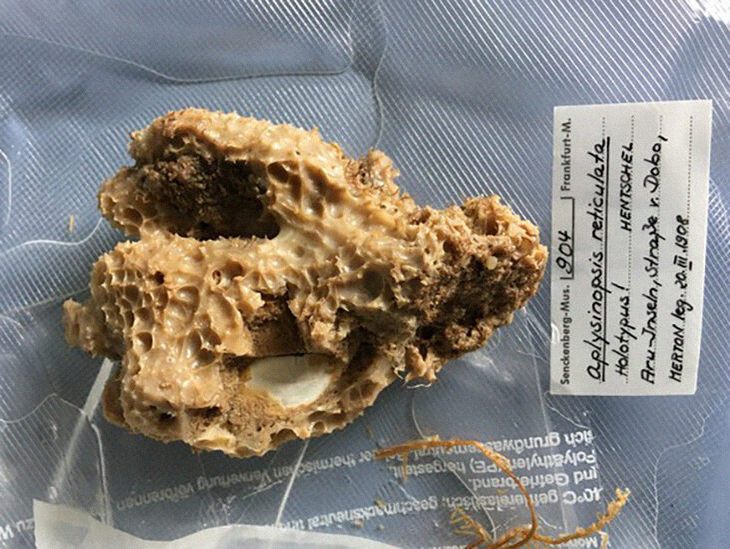
In an incredible development in the science world, there has been a major medical breakthrough, yet it’s where they found it that’s even more amazing. Scientists believe that a number of human illnesses can be cured via new chemicals found in the ocean.
Researchers managed to chemically synthesize a compound from a sea sponge called 3,10-dibromofascaplysin – otherwise known as DBF – and test it against a number of prostate cancer cells. The findings were extraordinary, showing that this synthesized compound managed to force tumor cells to die. The compound even works well when used in combination with a number of approved anti-cancer medications.
According to oceana.org, “More than 80% of the ocean remains unexplored. And because it’s difficult to protect what we don’t know, only about 7% of the world’s oceans are designated as marine protected areas (MPAs).” This means that the human race has only discovered a mere portion of the oceans, as well as any unknown treasures the ocean depths might contain.
Throughout the years, medical researchers have looked more and more into novel or untapped resources, all in the hopes to find new discoveries that have the potential to cure human diseases and illnesses, and this includes searching the world’s many seas and oceans.
Back in 2019, the scientific world managed to celebrate the 50-year anniversary of cytarabine, which happens to be the ‘very first marine-derived drug’ that had been isolated from a marine sponge. The compound found in the sponge, that was made into a drug, has been used in the treatment of leukemia.
According to Midwestern University, since last October, at least nine different drugs developed from marine origins have been clinically certified to treat patients with cancer.
A Compound That Kills Cancer Cells
In recent revelations, research from Russia’s Far Eastern Federal University (FEFU), alongside colleagues from other areas of Russia and Germany, managed to isolate the compound 3,10-dibromofascaplysin from the sea sponge Fascaplysinopsis reticulata, which they then chemically synthesized.
They decided to test the compound on a number of prostate cancer cells, some of which were even resistant to chemotherapy. They chose to release their study findings in the Marine Drugs journal.
According to the study researchers, they found that ‘3,10-dibromofascaplysin forces tumor cells to die via a programmed cell death mechanism.’ The researchers also found that the synthesized compound managed to work positively when combined with a variety of other approved anti-cancer medications.
An In-depth Study of the Marine Compound
It was in 1988 when scientists decided to try isolating the compound fascaplysin found in a marine sponge. Over 30 years later, this compound is already known to have antibacterial, antiviral, antifungal, antimalarial and anti-tumor effects.
Russia’s FEFU released a paper in 2017, which proved that ‘fascaplysin derivatives kill glioblastoma multiforme cells.’ These cells happen to be an aggressive form of brain cancer which normally doesn’t end well for patients.
Again in 2019, a number of the same FEFU researchers whom published that study also issued research which showed the development of ‘a new method to synthesize derivatives of fascaplysin.’
This was the first time the scientists were able to get an adequate amount of 3-bromofascaplysin and 3,10-dibromofascaplysin. In addition, these particular compounds were said to be used for ‘first syntheses of the alkaloids 14-bromoreticulatate and 14-bromoreticulatine.’
The study managed to demonstrate that ’14-bromoreticulatine selectively affects Pseudomonas aeruginosa,’ a bacterium that has been resistant to a number of different kinds of antibiotics. Meanwhile, the researchers also found that 3,10-dibromofascaplysin managed to induce metabolic activity in prostate cancer cells.
In The Future
Later on in this coming year, researchers are hopeful that they’ll be able to share the outcomes of their studies on 3,10-dibromofascaplysin and the way it affects non-cancer cells. Fascaplysin has also shown to be incredibly toxic to healthy cells, which is why it has had limited use as a medical drug until now.
Head of the Organic Chemistry Department at FEFU’s School of Natural Sciences in Russia, Dr. Maxim Zhidkov, shares, “In our laboratory, we are trying to modify the structure of these compounds in order to reduce their cytotoxic effect on normal cells, while maintaining the necessary anti-tumor effect.”
“The goal is to create a substance for targeted therapy, with a minimum of side effects for healthy cells of the body,” he adds.
But while there is progress, researchers also hypothesize that it could be another 10 to 15 years before their research ends up in the development of a brand new drug. Regardless of the time frame, it is still very promising.



